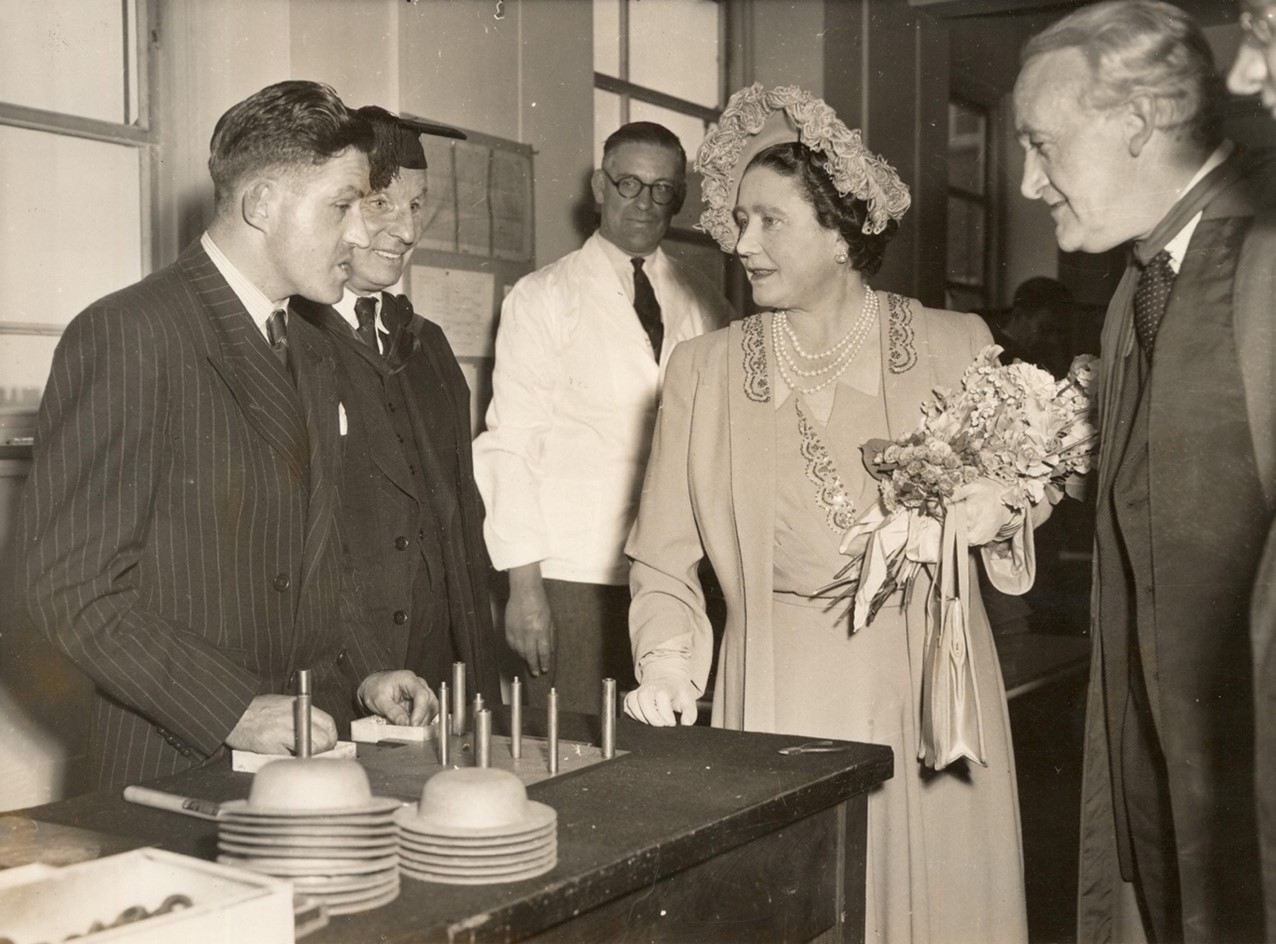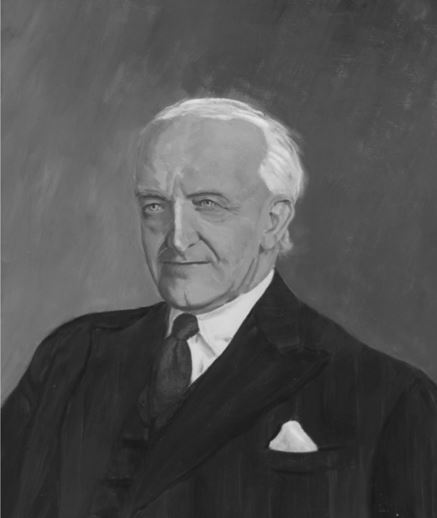By Joanna Bourke, Professor Emerita of History at Birkbeck, University of London and author of Birkbeck: 200 Years of Radical Learning (OUP, 2023).

Queen Elizabeth, the Queen Mother, visiting Birkbeck’s Department of Psychology in 1953. Also present are Dr. Fuchs (Chief Technician) and Professor C. A. Mace (founder and Head of Department)- JSTOR image library
Cecil Alec Mace was the first Professor of Psychology at Birkbeck. He was known for his work as an industrial psychologist, as well as his thoughts on causality, the ‘mind-body’ problem, logic, behaviourism, self-identity, and the emotions. He was especially witty when addressing the question: ‘Must philosophers disagree?’, which, he quipped, was guaranteed to result in a room of philosophers spiritedly disagreeing!
Psychology was not Mace’s first choice for a career. When he attended the University of Cambridge, it was to study for Holy Orders. He soon switched to moral philosophy, highly influenced by analytical philosopher G. E. Moore and industrial psychologist Charles Samuel Myers. After academic positions at the University of Nottingham, St. Andrews University, and Bedford College, he joined King’s College London.
Mace’s route to Birkbeck was circuitous. Before the 1940s, psychological studies in the colleges of the University of London were part of a philosophy degree. Since Birkbeck did not have a Professor of Psychology, Birkbeck students took their two compulsory psychology papers at King’s College, under the tutorage of Francis Arthur Powell Aveling. With the start Blitz, all colleges in the University of London except Birkbeck fled the city for less dangerous localities. Aveling, however, was left behind and enthusiastically accepted an invitation by C. E. M. Joad, who was Head of Philosophy at Birkbeck, to transfer his teaching of psychology to Birkbeck’s premises.
It was a bold move, but, when Aveling died the following year, his lectures were taken over by Mace. Like Aveling, Mace was as much a philosopher as a psychologist—indeed, he served as President of both the British Psychological Society as well as the Aristotelian Society. At Birkbeck, however, Mace was responsible for enabling Psychology to be granted its own disciplinary status, separate from philosophy. By 1944, the Philosophy and Psychology Departments had become separate Departments, with Mace acting as Professor of Psychology for seventeen years until he retired in 1961.
Mace had interesting thoughts on the use of incentives in the workplace. He argued against the notion that workers were primarily incentivized my money. Rather, they had a ‘will to work’. Along with Bertrand Russell, Mace contended that ‘belief is central to any analysis of the mind’. He also reflected on how Cartesian concepts might be replaced by ‘psychosomatic’ concepts ‘in which the person is thought of as a being – a single being – who has both bodily and “mental” (or psychological) attributes and whose “experiences” are psychosomatic’. He believed that this would greatly help in physician/patient relations. Well before it became fashionable, Mace was curious about cybernetics and information theory. He was also passionate about the role of both philosophy and psychology in war. During the First World war, he had been a pacifist and, as a consequence, spent that war at Dartmoor prison where he studied the psychological effects of imprisonment. During the Second World War, he was Secretary of the Council for Assisting Refugee Philosophers.
Mace’s thoughts on the ‘psychology of study’ were important in the way he approached his classes at Birkbeck. Mace argued that too much attention was being paid to memorization, contending that the mind (similar to the stomach) ‘must take its meal in moderation’. Students benefitted most from lectures if they spent the time listening, rather than frantically jotting down notes (which, he wittily added, should only be contemplated when the professor ‘has a fit of sneezing’). This was compatible with Mace’s ‘performative approach’ to teaching. He was an accomplished lecturer, giving his students highly stylized performances on subjects as diverse as the psychology of study, scientific management, the structure of the mind, mental deficiency, and logic. He was reported to have described his philosophy of teaching as ‘All one can do is think aloud, and hope that some of it will brush off’. When Mace died in 1971, The Times reported that he had been responsible for creating ‘the biggest and best-known psychology department in the country’.

